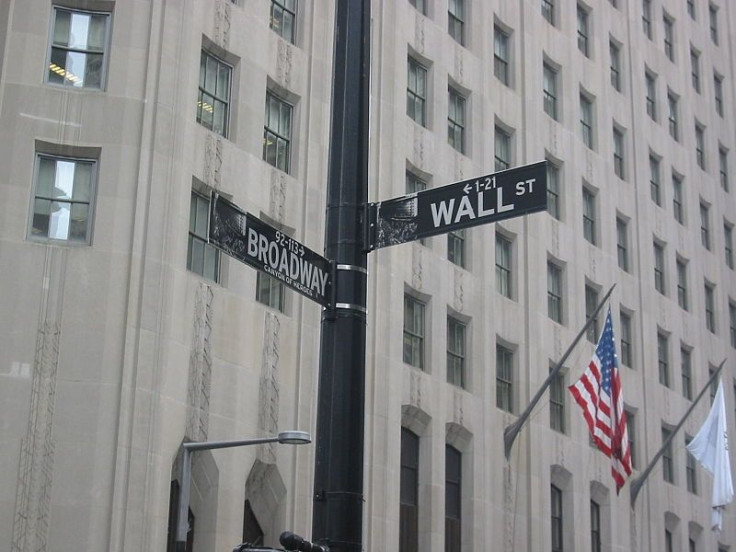Tuesday’s Stock Market Close: US Equities Fall As Housing Starts Plunge, Boston Fed Chief Warns Of 20% Jobless Rate

KEY POINTS
- Boston Fed President Eric Rosengren warned the U.S. unemployment rate could reach 20%
- Single-family housing starts plunged by 25.4% in April to an annualized rate of 650,000
- Overall housing starts fell by 30.2% from March to an 891,000 annualized rate
U.S. stocks dropped on Tuesday as traders digested more weak economic data and some tepid earnings.
The Dow Jones Industrial Average dropped 390.51 points to 24,206.86, while the S&P 500 fell 30.97 points to 2,922.94 and the Nasdaq Composite Index tumbled 49.72 points to 9,185.10.
Tuesday’s volume on the New York Stock Exchange totaled 4.44 billion shares with 1,223 issues advancing, 27 setting new highs, and 1,716 declining, with nine setting new lows .
Active movers were led by Sorrento Therapeutics Inc. (SRNE) , General Electric Co. (GE) and Ford Motor Co. (F)
Federal Reserve Chairman Jerome Powell told the Senate Banking Committee on Tuesday: “We are committed to using our full range of tools to support the economy in this challenging time even as we recognize that these actions are only a part of a broader public-sector response.”
Treasury Secretary Steven Mnuchin told the same committee that the government was “fully prepared to take losses” on coronavirus business bailouts
Boston Federal Reserve Bank President Eric Rosengren warned on Tuesday that the U.S. unemployment rate could reach 20%.
“Unfortunately, even by the end of the year, I expect the unemployment rate to remain at double-digit levels,” he said.
Single-family housing starts plunged by 25.4% in April to an annualized rate of 650,000. Overall housing starts, including multifamily, fell by 30.2% from the March reading to an 891,000 annualized rate. Permits for newly built homes dropped by 20.8% in April to a seasonally adjusted annual rate of 1.07 million.
Diane Swonk, chief economist at Grant Thornton, tweeted: “Housing starts plummet more than 30% -- permits better. The housing market is posed to be a driver out of recession -- couldn’t do that in 2008. Supply is extremely tight. Need to keep credit flowing. Mortgage credit has tightened.”
Retail stocks generally declined.
Home Depot (HD) said its net income dropped by 10.7% in the first quarter due to the coronavirus pandemic. But Walmart (WMT) reported that its e-commerce sales surged by 74% in the first quarter.
Nasdaq will make it tougher for some Chinese companies to list on the exchange through tighter new rules.
“It’s still very tough from a fundamental perspective for anyone to get incredibly bullish,” said Yousef Abbasi, director of U.S. institutional equities at INTL FCStone. “If we get more data and cities start to reopen … then I would anticipate more confidence among investors.”
More than 4.8 million covid-19 cases have been confirmed around the world, with more than 1.5 million cases in the U.S. alone.
“With over 100 treatments and vaccines under development, a medical breakthrough, a more sophisticated test and trace model, and government support could drive more upside,” said Mark Haefele, chief investment officer at UBS Global Wealth Management. “But our downside scenario cannot be ruled out. This could be triggered by a significant second wave of virus cases breaking out.”
Overnight in Asia, markets closed higher. The Shanghai Composite climbed 0.81%; Hong Kong’s Hang Seng gained 1.89%; while Japan’s Nikkei-225 rose 1.49%.
In Europe markets finished mixed, as Britain’s FTSE-100 fell 0.77%, while France’s CAC-40 dropped 0.89% and Germany’s DAX edged up 0.15%.
Crude oil futures gained 1.7% at $33.26 per barrel, Brent crude slipped 0.09% at $34.62. Gold futures rose 0.82%.
The euro rose 0.06% at $1.0921 while the pound sterling gained 0.43% at $1.2247.
The yield on the 10-year Treasury dropped 4.44% to 0.711% while yield on the 30-year Treasury fell 1.58% to 1.435%.
© Copyright IBTimes 2025. All rights reserved.





















